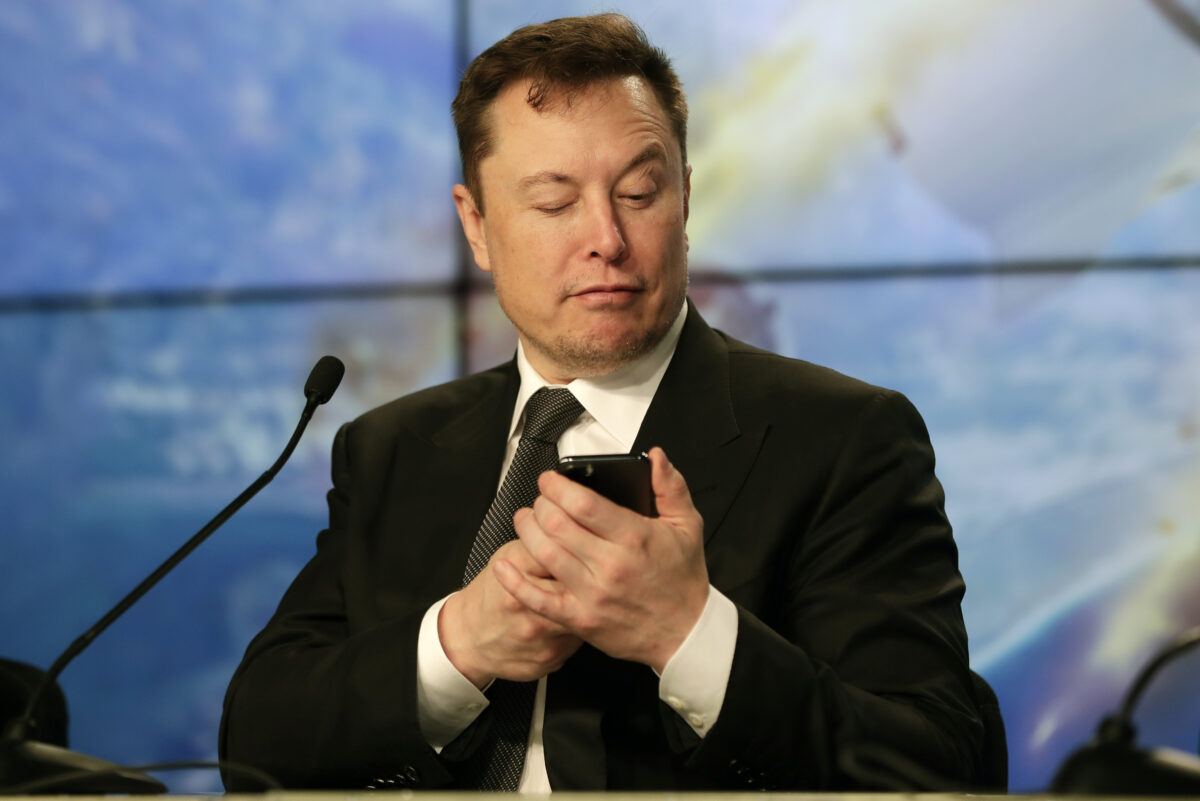Elon Musk’s Claim of ‘Massive DDOS Attack’ Reportedly Denied By Sources at X: ’99 Percent’ Chance It’s a Lie

AP Photo/John Raoux, File
Elon Musk’s interview with former President Donald Trump on X, The Platform Formerly Known as Twitter, got off to a very bumpy start Monday evening, as technical glitches prevented many users from being able to access it. Musk claimed the difficulties were due to a “massive DDOS attack,” but this was met with a high degree of skepticism — including several sources at X telling The Verge it was just not true.
The chat between Musk and the ex-president got off to a late start, as many users were initially unable to tune in for over half an hour after the Space was supposed to open. Musk claimed the problem was a “massive DDOS attack,” and the interview finally got started around 8:45 pm ET.
Musk also claimed that the system had been tested “with 8 million concurrent listeners earlier today.”
A DDoS (“distributed denial of service”) attack is often compared to an online traffic jam, with popular websites functioning a lot like a busy store. Normally, customers can come and go and the store can handle them without issue. But if thousands of people suddenly showed up at the store, with no intention of shopping, just to block the entrance, it would prevent legitimate customers from being able to approach, and the store would be unable to do business.
In a DDoS attack, hackers use multiple computers to flood a website or online platform with an overwhelming amount of traffic, overloading the servers and making it slow or unresponsive for legitimate users, or even making it crash completely, so they cannot access it at all.
In general, a DDoS attack is an assault on the entire website, not on one specific user, or, as Musk claimed in this case, one specific Space hosted by one user and with one other user as a speaker. It might be more plausible if the entire Twitter/X website had technical difficulties or if the entire Space functionality went down.
But that’s not what happened. This reporter was able to access many other tweets, users’ profiles and timelines, search screens, trending topics, and other parts of Twitter/X on both the website and app while the glitch with the Trump-Musk Space was occurring, and other users reported similar lack of problems with the rest of the site.
In the specific case of the Musk-Trump Space, it crashed immediately and then began late, with the users who were able to get in hearing electronic music for about half an hour. Eventually, it finally started around 8:45 pm ET.
The Verge’s Gaby Del Valle and Kylie Robison reported on the technical troubles, making the the observation that the rest of X “appear[ed] to be working normally” during the Space’s glitchy start.
“[A] source at the company confirmed to The Verge that there wasn’t actually a denial-of-service attack,” they continued. “Another X staffer said there was a ’99 percent’ chance Elon was lying about an attack.”
Axios senior media reporter Sara Fischer commented on The Verge’s reporting in an appearance on Laura Coates Live, telling guest anchor Jim Acosta Monday evening that it did appear that “the systems were overwhelmed,” not a DDoS attack.
“It’s an embarrassment for Musk,” said Fischer. “They’re trying to make this the video platform of choice, but they can’t get a livestream up and running.”
Watch the clip above via CNN.






